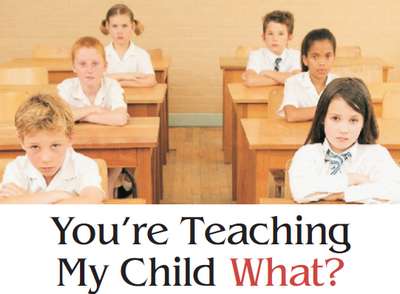ERO Should Talk To Parents First About Sex Ed
 Media Release 12 September 2018
Media Release 12 September 2018
Family First NZ says that the Education Review Office should talk to parents first before issuing reports about sexuality education in schools. Family First also questions why words such as “abstinence”, “delay”, “moral”, and “marriage” have been left out of guidelines for school.
The review acknowledges that the best outcomes are achieved when trustees and school leaders consult with the school community, and the parents being able to have ‘meaningful input into the content and delivery’ of any programmes. The report also admitted that ‘very few schools reported to parents on sexuality education achievement. Consequently, evaluation of sexuality education provision, when it did occur, focused mostly on what had been delivered, rather than learning outcomes for students.’
“The government is currently pursuing and promoting a curriculum where children are indoctrinated on ‘gender identity’ ideology and the harms of gender stereotypes, and given dangerous messages that they’re sexual from birth, that the proper time for sexual activity is when they feel ready, and that they have rights to pleasure, birth control, and abortion. Most schools, along with parents in that school community, are rejecting the extreme elements of the sexuality education guidelines, which probably explains why so many schools aren’t delivering them,” says Bob McCoskrie, National Director of Family First NZ.
“Parents also object to these programmes targeted at children which undermine the role and values of parents, and resources which fail to take into account the emotional and physical development of each child and the values of that particular family.”
“Yes, pornography viewing by young people is absolutely a major concern for parents, but what parents are crying out for is resources and an understanding of the technology, the risks, and of how to protect their children. They want their children to know that it is wrong and to be discouraged from viewing it. It is not just a topic for discussion, devoid of any moral framework or direction.”
In a 2017 independent nationwide poll of 846 people undertaken by Curia Market Research, 4 out of 5 parents said they are confident of their ability to teach their own children about sex and sexuality issues, and 2/3’rds believe that parents should be dictating any school-based teaching, not the government or groups such as Family Planning and Rainbow Youth.
“This polling is a clear rebuke to the current government approach of developing curriculum with minimal input from parents. Parents know their children the best and should determine the best timing and most appropriate way to tackle topics such as keeping themselves safe, consent, and ‘where do babies come from’. A valueless ‘one size fits all’ approach is far too simplistic and can even be harmful,” says Mr McCoskrie.
“Studies show that the biggest protective factors for coping with puberty and sexual involvement are married parents, family values, parental supervision, and parental expectations for behaviour. What happens at home is the greatest determinant of the outcomes for the young person. There seems to be a basic and ironic assumption that parents know nothing about sex and that only Family Planning and Rainbow Youth do. This is a myth and is rejected by Kiwi parents.”
Family First released a report in 2013 “R18: Sexuality Education in New Zealand – A Critical Review” by US psychiatrist Dr Miriam Grossman which was sent to all school principals and all Board of Trustee Chairpersons of Intermediate and Secondary schools in NZ. Dr Grossman warned that the sex education resources fail to tell the full facts and compromise the concerns and wishes of parents, and the safety of young people. “A premise of modern sex education is that young people have the right to make their own decisions about sexual activity, and no judging is allowed. Risky behaviours are normalised and even celebrated. Children and adolescents are introduced to sexual activities their parents would prefer they not even know about, let alone practice. It’s reasonable to ask: is the ‘comprehensive sexuality education’ foisted on young people all over the world about sexual health, or sexual licence?” says Dr Grossman.
Here’s a comment from the report… “Leaders and teachers supported diversity in a variety of ways, for example, by asking students if they had a preferred name or pronoun, and using nongendered terms. The board responded to a request from students for gender-neutral toilets, saying it was a ‘no-brainer’ to meet this need. Students elected to have a same-sex couple as the main characters in their student-directed Shakespeare production. In 2017 and 2018, the school had gender-neutral events at athletics days.” And, apparently, this is a good model to follow!
ENDS






